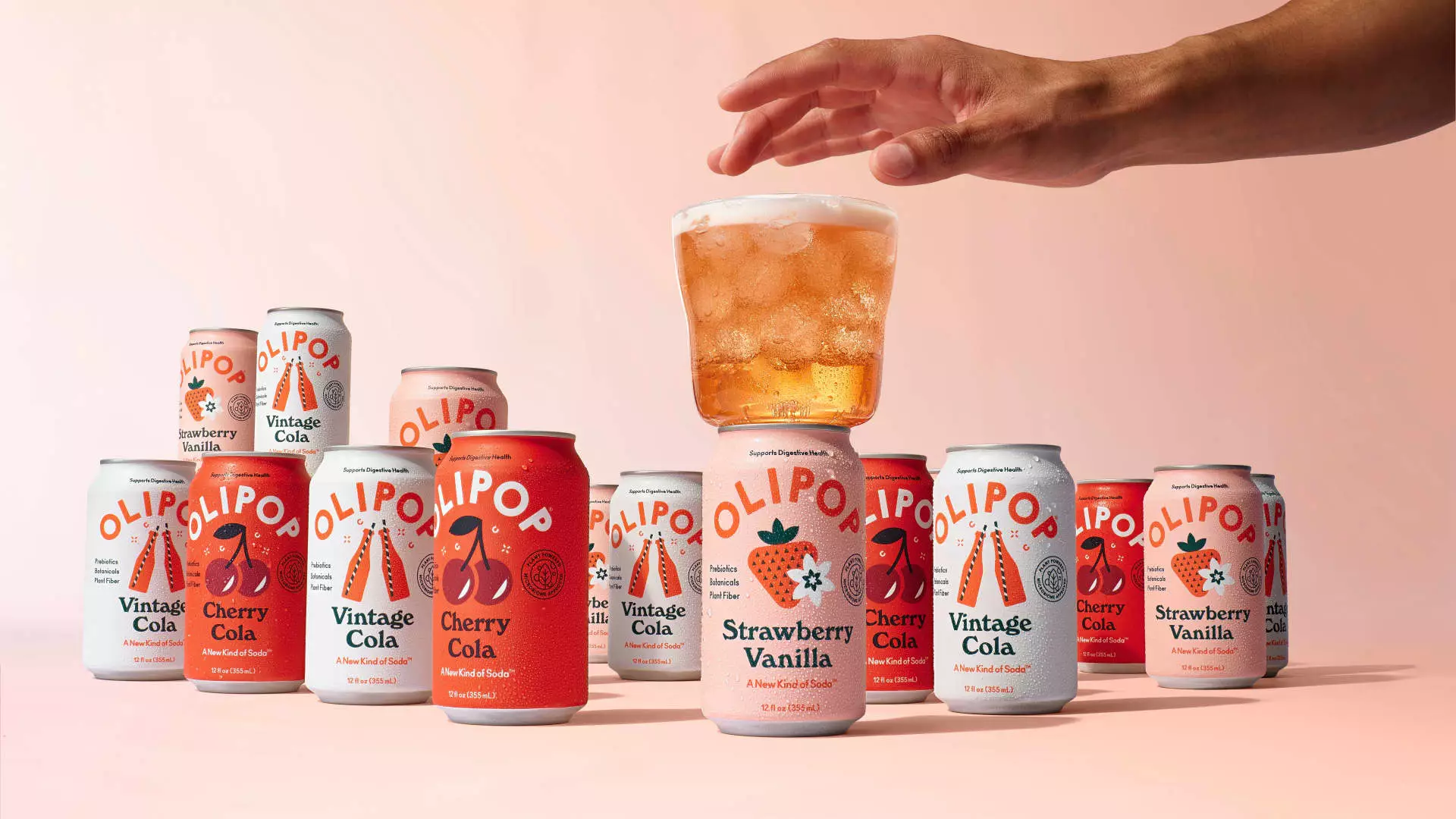Olipop, a pioneering brand in the realm of prebiotic sodas, has made headlines recently with its impressive valuation of $1.85 billion following a $50 million funding round. This achievement underscores the burgeoning popularity of functional beverages, particularly those aimed at promoting gut health. Founded in 2018, Olipop has adeptly tapped into a growing wellness trend, standing alongside strong competitors like Poppi, which have similarly focused their marketing efforts around the health benefits of carbonated drinks.
The recent Series C funding round, spearheaded by J.P. Morgan Private Capital’s Growth Equity Partners, positions Olipop for significant growth. With plans to broaden its product offerings and invest in marketing initiatives, Olipop is clearly aiming to solidify its stance as a major player in the nonalcoholic beverage sector. The company’s strategy to utilize the fresh capital for wider distribution channels hints at a commitment to not just maintain status quo but to expand rapidly into new markets.
One of the most intriguing aspects of Olipop’s success is its ability to attract a diverse consumer base. Notably, half of its growth can be attributed to traditional soda drinkers converting to healthier alternatives, while the other half is driven by new customers exploring the soft drink category. Impressively, about 25% of Gen Z consumers are reportedly opting for Olipop, reflecting a shift in preferences among younger demographics who prioritize health and wellness. This demographic insight highlights a shift in consumer behaviors, illustrating that health-forward choices are becoming mainstream.
Financial Successors: Profitability and Sales Growth
Achieving profitability in early 2024 marks a significant milestone for Olipop, particularly within a competitive market landscape. The brand reported annual sales surpassing $400 million, exhibiting a remarkable doubling in revenue from the previous year. Such financial growth places Olipop in a robust position to challenge larger market players like PepsiCo and Coca-Cola, both of which have expressed interest in potential acquisition opportunities. This level of interest from industry giants further emphasizes the disruptive nature of Olipop’s business model.
While Olipop is thriving, it is essential to note the competitive landscape it operates within. Poppi, another key player in the prebiotic soda market, has also garnered attention through innovative marketing techniques like its Super Bowl advertisements. However, Poppi has faced its share of controversies, including a lawsuit contesting its health claims, demonstrating the scrutiny that functional food and beverage companies are increasingly under.
As consumer demand for healthier alternatives continues to rise, brands like Olipop will likely shape the future of the beverage industry. Their approach not only caters to health-conscious consumers but also challenges traditional notions of what soda can be. As more companies enter the functional beverage space, it will be fascinating to observe how consumer preferences evolve and how brands adapt to maintain their competitive edge. The success story of Olipop thus serves as both an inspiration and a cautionary tale in the dynamic world of food and beverage.

